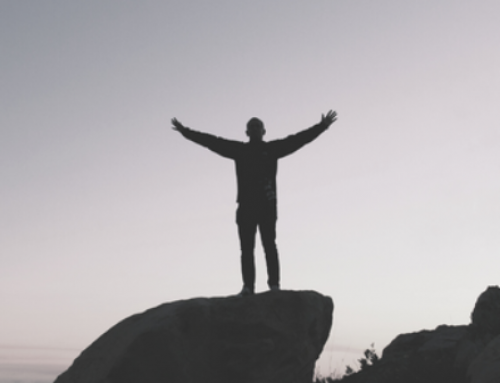By John J. Murphy
Sometimes during my lectures and coaching sessions, I need to remind people that we all have 24 hours in a day, and it’s been that way for a while. Therefore, emotions like anxiety, stress, and feeling overwhelmed are not manifesting because we do not have enough time. They are revealing important lessons to us about how we are prioritizing the time we have.
Think about this like closet space. Often, people assume they need more closet space because the space they have is packed full of things they do not really need. As human beings, we tend to think more in terms of “adding” rather than subtracting. It seems obvious. And because we tend to assume we need more; we complicate the simple. Mindfulness challenges us to be aware of this and seek creative alternatives. As counterintuitive as it may seem, wise life practices often require that we subtract and delete when we think we need more. There is wisdom in simplifying the complex, leaning out wasteful, non-value-added activities, and emptying our glasses to receive more. In other words, we need to let go to let flow.
E.F. Schumacher once wrote, “Any intelligent fool can make things bigger and more complex; it takes a touch of genius and a lot of courage to go in the opposite direction.” I find this true almost everywhere I go. I see well-educated people with very positive intentions gasping for air in cumbersome systems and work cultures. Rather than flowing seamlessly and effortlessly with grace, they are struggling to get through the day without exploding.
Believe me, I know what it is like to have a full plate. I have traveled as many as 51 weeks out of 52, working in countries and cultures I know little about, and delivering consulting services to very demanding people I have never met. How is a person to remain calm, mindful, and poised when it appears there is little time to breathe?
Here are eight tips I have found to be immensely helpful:
- Breathe mindfully. Give your brain a rest with relaxing meditation. Let go of analysis, criticism, judgment, and over-thinking. Just breathe deeply, inhaling to a count of four or five seconds and exhaling to a count of four or five seconds. Focus your attention on your heart and hold thoughts of appreciation and gratitude. It is a practice you can use throughout the day, anywhere, anytime. You do not need to be sitting cross-legged on a mountaintop to experience the benefits of this simple heart coherence meditation. You may even notice that gifted athletes and performers use it throughout an event. By calming your mind, you calm your heart. And by calming your heart, you calm your experience with the world.
- Create a “Zen Den.” While meditating is valuable throughout the day, it helps to have a quiet, peaceful space you can use to center yourself. Even Superman had a “fortress of solitude.” My Zen Den consists of warm, earthy colors, fragrant candles and aromatherapy, beautiful artwork, live plants and flowers, and peaceful music. Even when I travel, I find ways to make my hotel room warm and calming.
- Commune with nature. Get outside. Sit on a balcony or park bench. Take a walk. And pay attention to the life around you. Look at and listen to the birds sing. Watch the sunrise – even if this means getting up 20 minutes earlier to start your day in a positive mode. Get away from electronics and mainstream negativity. Tune your mind into something peaceful, breathing deeply as you do.
- Take time to evaluate your use of time. Examine what you are holding onto in your “closet” of time. What activities are you doing that you can eliminate? How much time are you wasting on unproductive distractions? Note that an activity is only productive if it is moving you in the direction of a desired outcome. For example, if you value being healthy and fit, taking time to exercise and eat well is productive. Watching television, eating processed carbs, or catching up on the latest social media gossip is not productive. Get your priorities straight. Clean out your closet. You will likely discover that you have more than enough time to do what is essential.
- Ask for help. In the event you have a lean, clean closet and your priorities are in order, and you still feel overwhelmed and burned out, look for help. Sometimes, we get in our own way by refusing to delegate or reach out to others for support. Of course, this requires some degree of trust, but without trust you will never be an effective team member. And the best results in life require teamwork. We all know this. We need to transcend the fear-based ego thought-system, and work in harmony, peace, and balance with others.
- Learn to say no. Sometimes, we are so eager to get ahead in life we say yes when we really mean no. Be clear. Do not confuse these two responses. Being response-able requires discernment, self-management, and vigilance. Set boundaries for yourself and do not bite off more than you can chew. More is not better. Find your center, align with your priorities, and maintain a healthy balance in life. Your performance will improve on the things that matter most, and the non-essentials will fade away.
- Surround yourself with positivity. This includes people and corporate cultures. If you feel a certain “drain” on your energy when in certain environments or around certain people, this is telling you something. Pay attention. Be mindful of your surroundings. A fish will not survive long out of water. Find a culture and personal relationships where you thrive, where you approach each day with enthusiasm and eagerness. It is your essence to grow and prosper. This is your nature. Cultivate it by putting yourself in the right place with the right people. And remember, sometimes this requires “pulling some weeds” to make more room for growth.
- Question limiting beliefs. Note that some of the most significant “weeds” impeding your growth and prosperity are your own negative, self-limiting thoughts and beliefs. You will feel this when you feel overwhelmed, burned out, and entangled in hopeless despair. Listen to your intuition and allow it to guide you to pursuing your true purpose in life. This translates into feelings of eagerness, enthusiasm, passion, and flow. Pull these weeds by being aware of negative thinking and self-doubt from your mind. Recognize that you are worthy of a life of peace and joy, despite the suffering that has existed since the beginning of time. You cannot change other people and the world at large. You can only change your mind about the world. A change at this level changes your life experience.
These eight practices have given me great relief in countless situations – as a business consultant, executive coach, entrepreneur, teacher, and father. You may have a lot on your plate, especially with a global pandemic and unprecedented change swirling around you, but mindful practices like these will help. They may not change the world at large, but they will most certainly change your experience with the world. And in times of great uncertainty, this may be the only real stability you have to count on.
John J. Murphy is an author, speaker, entrepreneur, business consultant, and coach and has been for over 30 years. He has traveled as many as 51 weeks out of 52, teaching in dozens of countries around the world, with languages and cultures he knew little about.






Leave A Comment